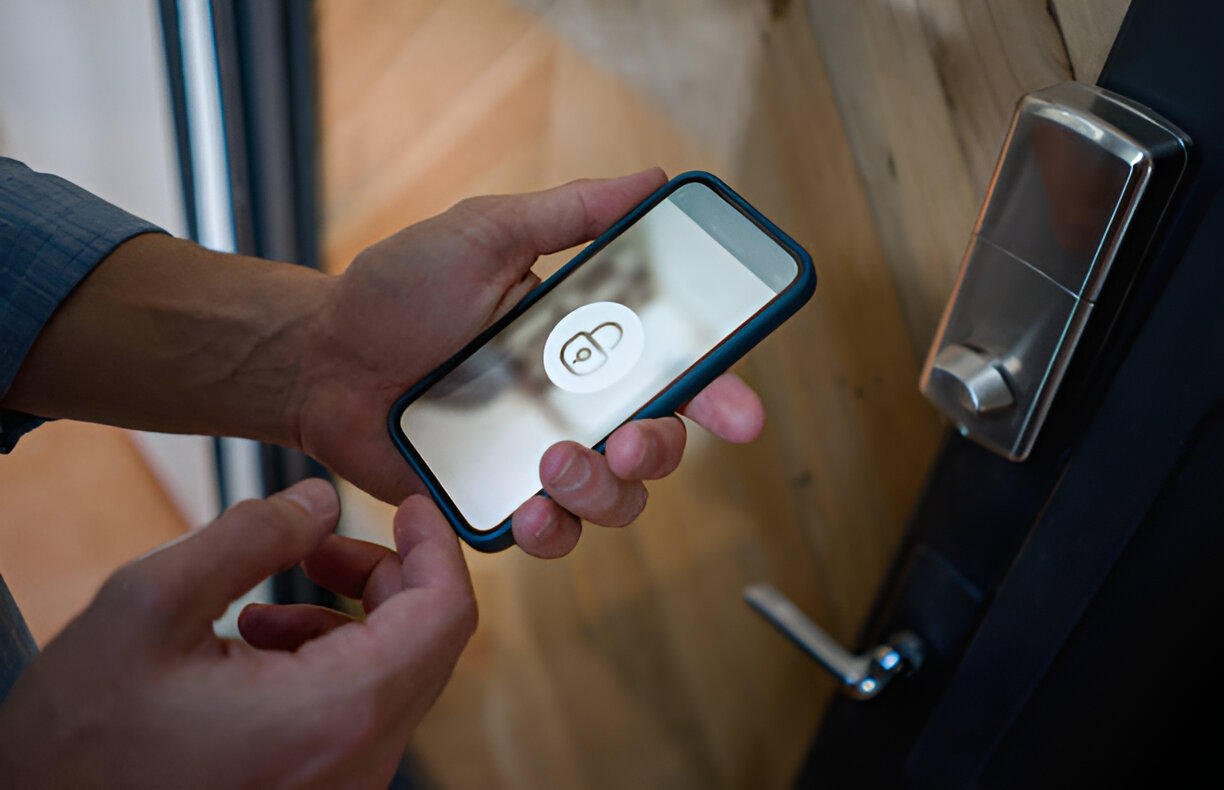
Event App Security – The Best Practices to Protect Attendee Data and Ensure Privacy
Last Updated: April 8, 2025
Every time people sign up for an event, send a message, or enter their details into any event app, they trust that their information is safe. But is it really safe?
One of the biggest things that keeps organizers on their toes is “data privacy in event apps”.
Event apps store sensitive data such as names, email, and even payment information, which makes them a prime spot for hackers. A single security mistake can lead to lost data, scams, and lost trust (a crucial thing for organizers). Hackers trigger specific spots, mostly such as fake emails, malware, and weak passwords, to break in and steal information. Many believe that the threat sword is only to big companies, but small companies are equally vulnerable.
Event app security is not just about preventing hackers but keeping attendee data safe. A secure app helps attendees feel safe and comfortably attend and engage.
The Hidden Cyber Threats Lurking in Event Apps
Event apps might feel secure on the surface, but dig a little deeper, and you’ll find some risks that are easy to miss (until it’s too late). These threats aren’t always obvious, but they can seriously mess with attendee trust and data privacy.
Data Breaches Are Way More Common Than You Think
All it takes is one small mistake, one missed update, and one weak password, and boom, personal info gets leaked. We’re talking about event attendee data such as names, email addresses, and even payment details. Stuff nobody wants floating around the internet.
Fake Apps and Scam Emails Are a Real Thing
Hackers are clever (and pretty gutsy, honestly). Some create fake versions of real event apps just to steal your login info. Others send “official-looking” emails with links that lead to nowhere good. If something feels off, it probably is.
Public Wi-Fi Isn’t As Friendly As It Seems
Sure, free Wi-Fi at the venue sounds great. But it’s also where sneaky cybercriminals love to hang out. They can intercept your data without you even realizing it, like eavesdropping, but digitally.
Third-Party Add-ons Can Be Sneaky
A lot of event apps connect with tools like payment platforms or ticketing systems. That’s super helpful, but if even one of those connections isn’t properly secured, hackers can sneak in through the side door. You wouldn’t leave your back gate open, right?
A Real-Life Example – That Made a Huge Impact & Loss
You will not need more convincing after reading this.
May 2025 – PharMerica Breach
More than 5.8 million individuals had sensitive data exposed after a breach at PharMerica, a well-known pharmacy services provider. Full names, birthdates, addresses, social security numbers, medication details, and health insurance data are the information that was leaked.
Numerous data breaches happen every year. Only a few of the breaches were reported in 2025 – many more go undetected or unreported.
Past data breaches that are tough to forget and still make headlines—Yahoo (3 billion records), Facebook (530 million users), and J.P. Morgan (data from 76 million households and 7 million small businesses).
As more people rely on mobile apps and connected devices, keeping user data safe is more important than ever. Without strong security, even a small app can become a big target.
Essential Security Stuff Every Event App Should Have (Yep, This Matters)
There is no scope for denial, event apps are super helpful. They handle schedules, tickets, chats, and even payments. But they also collect a ton of personal info. If you’re using one (or building one), security shouldn’t be something you deal with after something goes wrong. Here’s the stuff that really needs to be there from the get-go:
Multi-Factor Authentication (MFA)
Do you know that annoying but useful step where you get a code on your phone before logging in? That’s MFA. It’s like a second lock on your door. Even if someone steals your password, they still can’t get in without that extra code. It’s small but makes a big difference.
End-to-End Encryption
This just means everything people type or send in the app—messages, payments, personal info—stays private. No one can peek at it, not even the folks running the app. Think of it like sealing a letter in a tamper-proof envelope before mailing it off.
Secure API Connections
Most apps need to “talk” to other services, like payment systems or ticketing tools. Stuff can sneak through if those connections are not locked down tight. So, it’s super important to double-check who you’re linking up with and how. Don’t just connect anything and everything.
Role-Based Access (a fancy way of saying “not everyone sees everything”)
Different people using your app should only see what they need to. A speaker doesn’t need to look at payment info. A volunteer doesn’t need full attendee data. Keeping access limited helps avoid messy mix-ups (and keeps private stuff private).
Data Privacy Compliance – Are You Following Rules?
It will be the worst dream that becomes a reality for any organizer if they have to deal with a data breach and angry attendees. Check the data privacy boxes early and set the lock with mandatory rules.
Data Rules – GDPR & CCPA
GDPR (General Data Protection Regulation in Europe) and the CCPA (California Consumer Privacy Act in the USA) are big ones present today. Under these, businesses (yes, even event organizers) are required to protect personal data, get consent before collecting, and give people access to what you store about them and what you can’t. Avoiding these rules can lead to a big mess, fines, and, worst of worst, loss of trust.
Only Collect Data That You Really Need
This is an easy one. If your event app does not truly need the home address or birthdate of the attendee, simply do not ask for it. This is called data minimization. The less personal data you collect, the less you have to protect and the less chance of something going wrong.
Transparent Privacy Policy
The privacy policy is for people to keep them informed about how long the information will be kept, who has access, and how their data will be used. The policy should be clear and transparent in easy language that builds trust, with no confusing talk. The people are also entitled to know how they can access or delete their information if they want to.
How Attendees Can Protect Their Own Data? (Security is important from both ends)
It is shocking, but it is true that most people don’t even care about data security. However, if you are heading to attend an event, there is nothing wrong with being extra careful.
Look Out for Phishing Scams
Attendees might get an email from the event team, but something feels off. Maybe the logo looks a little weird, or it is asking for login info, do not click anything!! Phishing messages or emails often seem like real event updates, but they are fake. Always check the sender and go directly to the official event website or app.
Download the Official App
Quick tip – before installing anything, double-check that you are getting the real deal. Fake versions do exist, and yes, they are just waiting to scoop up your info. Use the link from the official source or search carefully in the app store – read reviews, check the developer name, and look for a high number of downloads.
Be Smart with Public Wi-Fi
Public Wi-Fi at hotels, coffee shops, and events is super convenient but also a little risky. If you are using it, maybe skip logging into anything personal. Or use a VPN if you have one – it adds a bit of a safety net.
Turn On Extra App Security
If the app offers two-factor authentication (2FA), use it. This adds a second step, like a code sent to your phone, before anyone can log in. It might take an extra 10 seconds or one more step, but it can save you a headache later.
What is the Future of Event App Security – What’s Next?
Event app technology is changing, or say updating, fast, and so are the ways we need to protect it.
AI’s Stepping Up
It is like a digital watchdog. AI can catch unusual activity that does not match your usual behavior. It triggers you with a notification that alarms you before things get out of hand. Smart problems need smart solutions.
Blockchain is Helping with Tickets
Fake tickets are a pain. That is why some events are starting to use blockchain (basically, a tech that locks in info and keeps it safe) to manage ticket sales and verify who you are. It is harder to fake or mess with.
Biometric Authentication
Fingerprint? Face scan? These things aren’t just for phones anymore. Some event apps are testing this for quick and secure check-ins. Feels a bit sci-fi, but it’s happening.
Stricter Cybersecurity Regulations
Governments are stepping in with tighter rules about how apps should handle your info and secure attendee information in event apps. It keeps everyone more honest and you more protected.
Is Your Event Ready for the Next Cyber Threat?
Online threats are getting sneakier by the day. And if your mobile event app isn’t keeping up, well… it’s only a matter of time before things get messy.
You don’t need to be a tech genius to know this stuff matters. If people are trusting you with their info (names, emails, even payment details), it’s your job to keep that safe. That does not mean turning the app into Fort Knox—but it does mean using safety tools that make security feel like part of the plan, not an afterthought.
That is why Grupio keeps prioritizing security in event apps. It’s simple, clean, and built with the kind of smart features that don’t scream “complicated.” Things like built-in protection, smooth logins, and strong behind-the-scenes tech without ruining the user experience.
At the end of the day, people just want to feel safe using your app. Give them a reason to trust it—and they’ll keep coming back.

Zeena Awan is a dynamic Senior Project Manager at Grupio, recognized for her proven ability to lead complex, large-scale projects from inception to successful delivery. With extensive experience in project planning, execution, and process optimization, she excels at streamlining workflows, aligning cross-functional teams, and driving efficiency across operations.
Zeena is highly regarded for her strategic problem-solving skills, strong leadership, and commitment to excellence, consistently ensuring projects are delivered on time and to the highest standards of quality. At Grupio, she plays a pivotal role in enhancing operational processes, fostering collaboration, and implementing scalable solutions that align team performance with organizational goals. Her focus on both client satisfaction and team success has positioned her as a trusted leader in ensuring seamless project outcomes.


